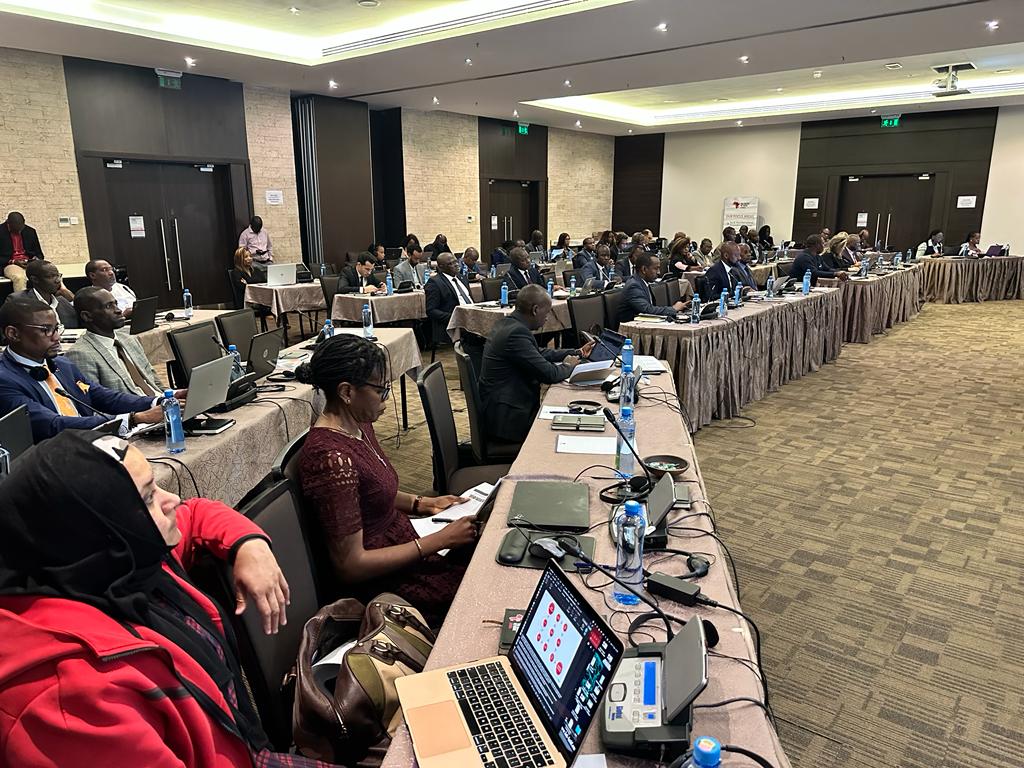Date

Nairobi, Kenya – Tax Justice Network Africa (TJNA) in collaboration with the African Union Commission (AUC), Department for Economic Development, Trade, Tourism, and Industry, have commenced the validation of its anti-Illicit Financial Flows (IFFs) policy tracker tool. The meeting is taking place in Nairobi, Kenya from September 11th to September 13th, 2023.
The meeting brings together policymakers, key stakeholders in the field of taxation, pan-African institutions working on illicit financial flows, experts from the AU Member States, TJNA network members and civil society organisations. The meeting aims to reflect further, refine and propose viable recommendations to strengthen the methodology and tool for the anti-IFFs tracker.
Participants drawn from AU (African Union) member states, partner organisations, United Nations Economic Commission for Africa (UNECA), African Tax Administration Forum (ATAF), AUC, and civil society organisations will discuss the scoring criteria and indicators of the anti-IFFs policy tracker tool.
This validation meeting follows a series of preliminary review meetings with partners and experts. In the initial reviews, TJNA updated the tools’ clusters and indicators, and the methodology was presented at the meeting of the 2nd Sub-Committee on Tax and llicit Financial Flows (IFFs) of the African Union (AU) Specialized Technical Committee (STC)on Finance, Monetary Affairs, Economic Planning and Integration on 31 May to 02 June 2023.
During the 6th STC (Specialized Technical Committee) held in Nairobi, Kenya, from 17 July to 20 July 2023, African ministers and their governments endorsed the recommendation of the 2nd STC Sub-Committee on Tax and IFFs, which requested TJNA to undertake a series of validation meetings with Member States under the auspices of the AUC to ensure that the policy tracker tool on IFFs is fit for purpose and builds on existing efforts.
Following these meetings, TJNA and the African Union Commission are bringing together representatives from its network partners and CSOs to review and validate the tracker. The participants will critically analyse the proposed methodology and provide their expertise in further refining the methodology.
The key objectives of the validation meeting include:
- Reviewing of parameters for alignment of national and regional policies with the anti-IFFs tracker tool;
- Reviewing the policy indicators to measure the success in implementing the tool and strategy at national, regional and continental levels.
- Scrutinise the accuracy and comprehensiveness of the data collected by the policy tracker tool.
- Strategise how best to integrate the tool into national and continental policies, and enforcement mechanisms.
- Development of clear roadmap with timeframes for undertaking alignment at national and regional levels.
The expected outcome of this validation meeting is to ensure that the tracker tool meets the criteria and helps African countries to influence policy decisions, inform financial governance, and, ultimately, contribute to economic growth, social development, and financial stability across Africa and beyond.
TJNA’s tracker tool draws upon the recommendations of various high-level reports that have extensively documented procedures required to combat IFFs, including the AUC/UNECA 2015 High-Level Panel on Illicit Financial Flows from Africa report; the 2020 FACTI Panel report, the 2020 UNECA Institutional architecture to address illicit financial flows from Africa report; the UNCTAD’s 2020 report on Tackling Illicit Financial Flows for Sustainable Development in Africa and the AUC Tax Strategy for Africa.
For further information about the policy tracker, interested parties are encouraged to contact Francis Kairu at fkairu(@)taxjusticeafrica.net